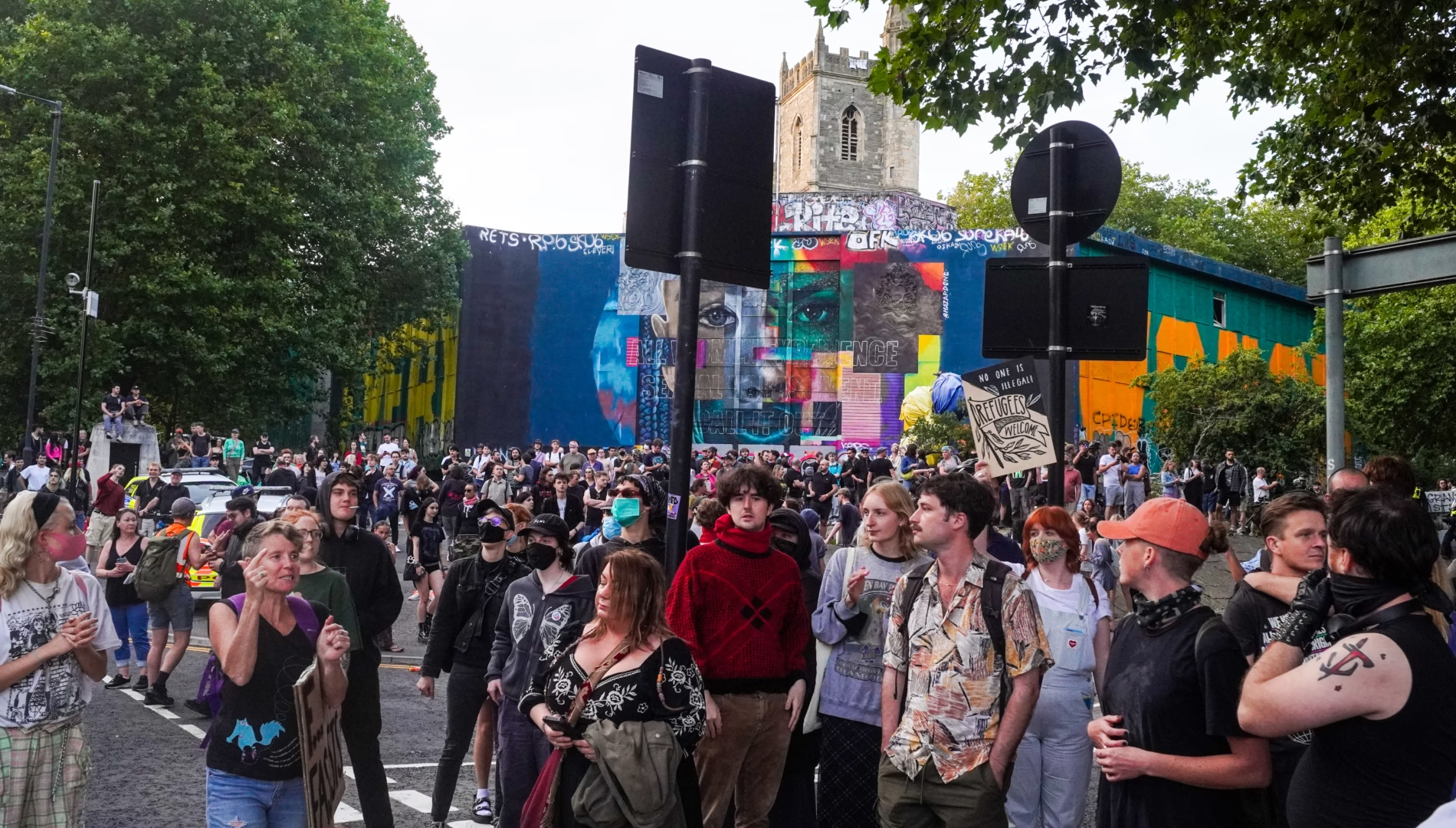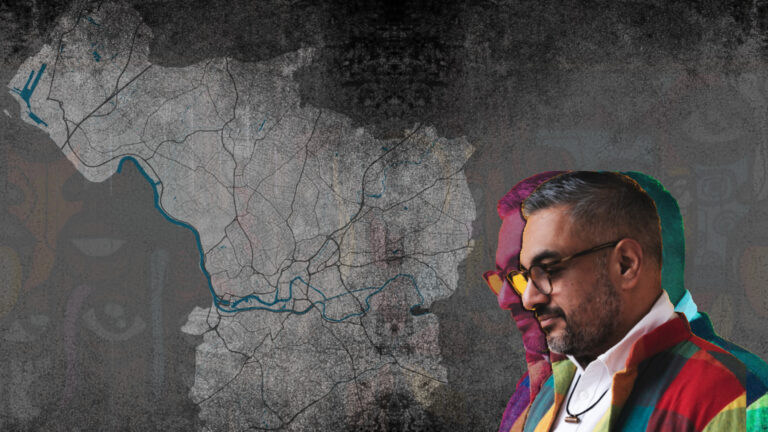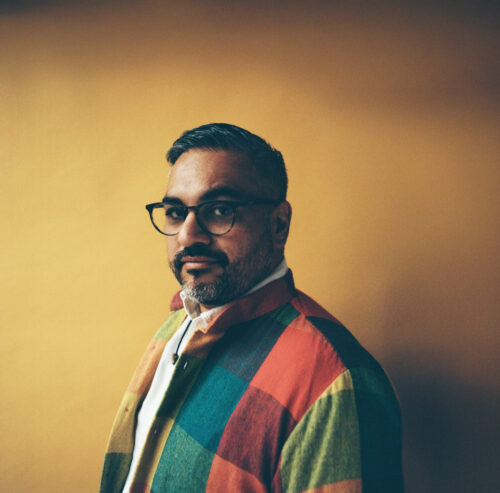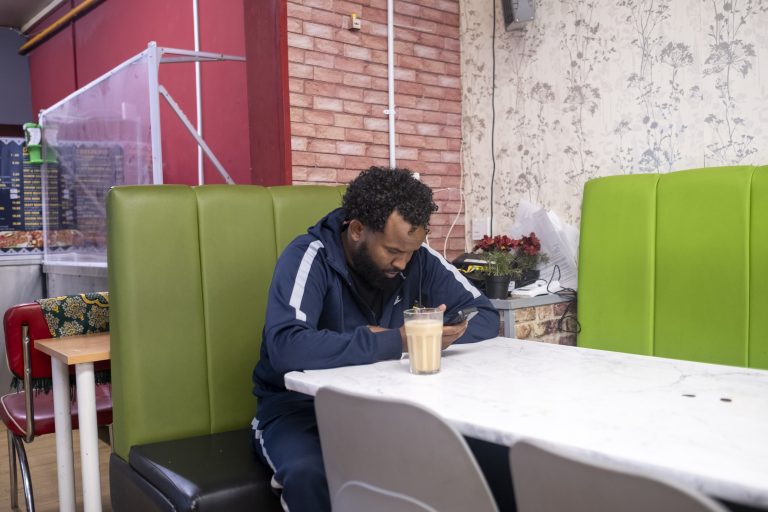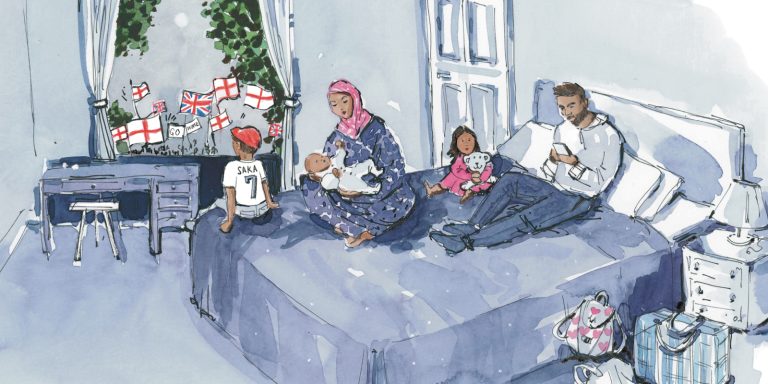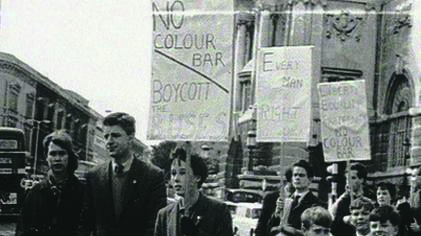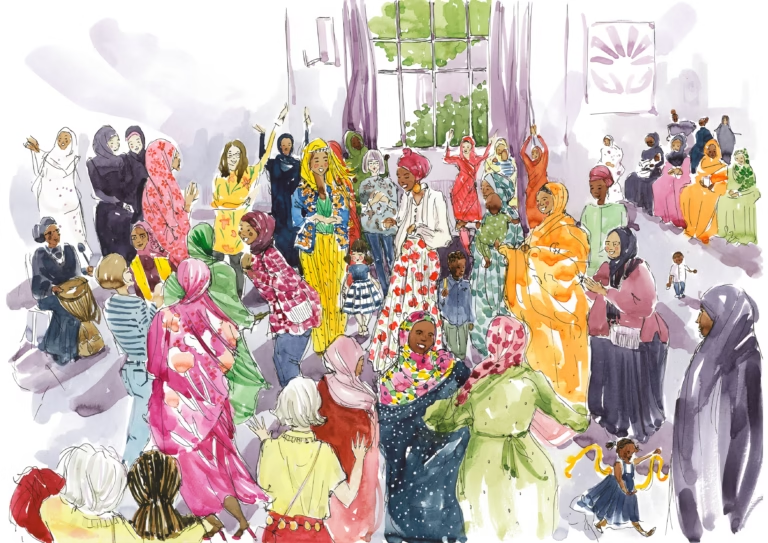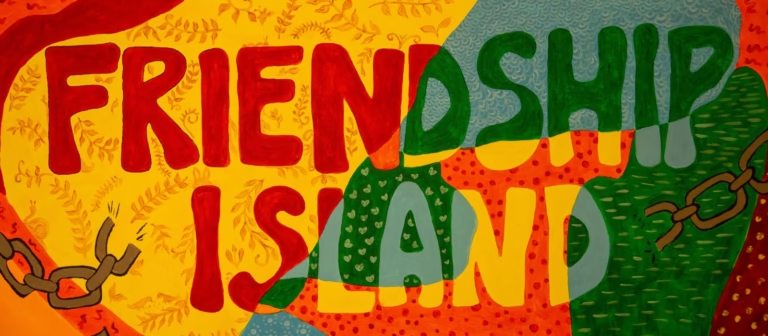From the windows of the hotel they were being housed in, people waiting for their asylum claims to be processed watched a brutal spectacle unfold below.
More than 100 protesters stood outside the entrance, arms locked, as a smaller but violent group of extremists attacked, punching, kicking, throwing missiles, and hurling racist and homophobic abuse.
The police were nowhere to be seen. It took 10 minutes before officers, who had been deployed to the wrong hotel, to finally arrive. Longer still before there were enough officers to actually stop the violence.
But antifascist demonstrators stood their ground, successfully fending off a full-blown attack on the Mercure Hotel in Redcliffe. It was an evening that will be remembered as one when Bristol took a stand against racist, xenophobic, anti-migrant hatred.
A year on from that evening of defiance on 3 August 2024, there are signs that the far right is gearing up for more violence. After targeting hotels believed to be housing asylum seekers in Essex, London and Norfolk, the far right is planning to return to Bristol on Saturday (9 August). Antifascist organisers are mobilising a counter-demonstration.
Is Bristol ready to take a stand all over again?
Bristolians have been reflecting on the events of last year. Who do we thank for organising the resistance, who do we blame for the violence, and how should we feel about the state’s response in the days, weeks and months that followed, and how do we build on the resistance?
Organise, prepare
“There’s been a lot of talk of how the defence of the Mercure Hotel was this spontaneous thing people in Bristol did,” a delegate from Bristol Antifascists tells the Cable – but activists were well prepared.
The hotel had been targeted previously by far-right groups like Patriotic Alternative. So, antifascist organisers knew to send spotters there and in other areas of the city they thought might be targeted that night.
We have to pay attention because it’s going to keep getting worse
Dozens of antifascists led the way from Castle Park. On a route to the hotel they had planned in advance. Well over 100 people were able to mobilise in front of it before the far right arrived. They stood ready, and braced.
Had they not done so, this could have been a very different story.
That summer, in Tamworth, Staffordshire, far-right extremists tried to torch a hotel, throwing bricks and setting bins alight as they targeted a Holiday Inn housing people seeking asylum. Similar scenes took place in Rotherham, South Yorkshire. These incidents serve as a dark reminder of how bad it could have gotten.
Jailed for taking a stand
“There were no police. We were [for a time] outnumbered, and it was scary. They were charging at us,” says Sam*, who was among those who defended the Mercure. “A bit of a ridiculous comparison, but you know the orcs in The Lord of the Rings?It was one of those moments where you question your belief that everybody is human at heart. You’re seeing really angry, red-faced people who are here to hurt someone. And they were throwing beer cans… when those things come down, they’re full and they hurt.”
Antifascists endured and held off the attack until the police arrived. Officers were told by those leading the response to go to the Holiday Inn at Temple Meads, according to researchers from the University of Sussex who studied the racist riots in the UK last summer.
“After realising there was ‘nothing going on there’, [officers] returned somewhat confused to Castle Park and continued supervising the operation there. This led to a situation where there were no police commanders present at the Mercure when the assault on it by anti-immigrant participants began in earnest,” reads a report by the Sussex academics.
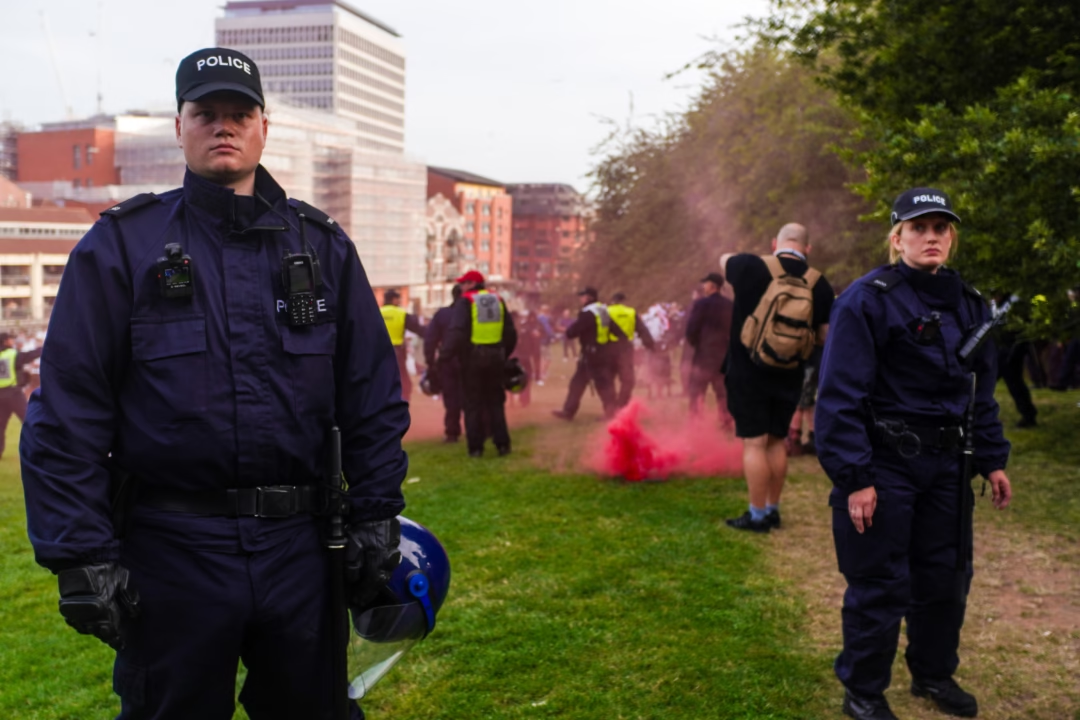
“A police eyewitness stated it was in the ‘top five most violent incidents’ they had witnessed in their 25-year career.”
In short, antifascists did what the police failed to – protect the asylum seekers from the racist onslaught outside.
What the police did do was go on to arrest some of the antifascists who stood in the way of the hotel, and those who took a stand against violent extremists in Castle Park earlier that day.
At least two of them, Nasir Hussein and Ebrima Jadama, both young men of colour aged under 25, were charged with violent disorder and handed jail terms. They were jailed despite acknowledgements from a sentencing judge who said they were reacting to “behaviour that could best be described as goading and provocative.”
A lengthy court submission from Avon and Somerset Police also explained the devastating impact of the racist, xenophobic violence on Bristol’s minority communities. A jarring submission, considering the police helped put those who stood up to the racists in the dock.
Another man, Jivara Omar, is due to stand trial in September at Bristol Crown Court after pleading not guilty to a charge of violent disorder. He jumped in to defend Ebrima, who had been singled out and set upon by a group of extremists earlier that day in Castle Park.
Those they fought with got away, for long enough at least to target the Mercure later in the evening. But Jivara and Ebrima were both arrested straight away by police in riot gear – Ebrima was pinned to the ground face down.
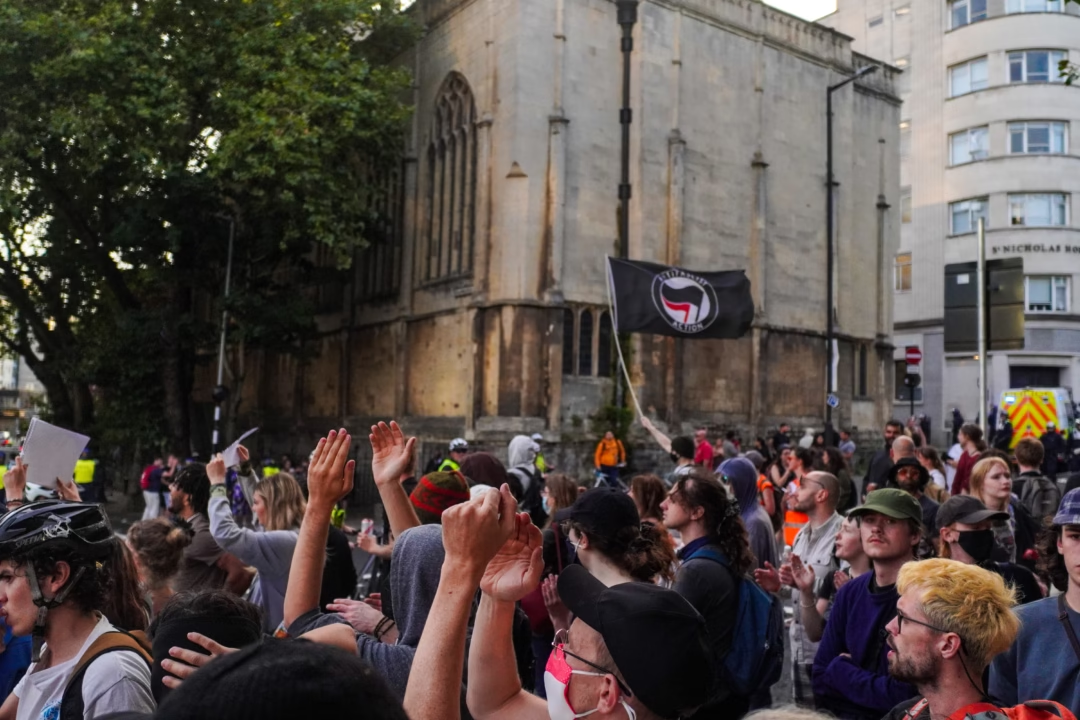
“The initial response [from the police and central government] was one of showing they were cracking down… a show of force to make clear that [racist violence] is unacceptable,” says Abbie, an activist who defended the Mercure.
“But ever since then, the state has just been capitulating to the kind of ideology that led to those riots in the first place – drifting further right on immigration. [They are] disgusting hypocrites who will say anything to stay in power, because they don’t really stand for anything.”
‘A race to the bottom’
In May, prime minister Keir Starmer announced a raft of tough migration policies that included doubling the amount of time migrants need to live in the UK before applying for settled status and tightening access to skilled worker visas.
In the speech, Starmer warned that without tough new rules, “we risk becoming an island of strangers.” The line drew sharp criticism for appearing to echo Enoch Powell’s infamous 1968 “Rivers of Blood” speech, in which the Conservative MP claimed that white population of Britain would become “strangers in their own country.”
The timing was telling. That May, the right-wing party Reform UK had just won big at the local elections in England, coming a close second in the West of England Metro Mayor poll.
Reform UK made major gains in the English local elections, winning around 677 of 1,600 seats and taking control of eight councils, including former Tory strongholds like Kent and Staffordshire. The party also won its first mayoralties in Greater Lincolnshire, Hull and East Yorkshire, and seized councils such as Doncaster and Durham from Labour.
In Runcorn and Helsby, it edged out Labour in a close Westminster by-election, securing its fifth MP. Reform leader Nigel Farage declared the results marked his party’s rise as the main opposition to Labour.
Meanwhile, in the West of England Metro Mayor elections, Reform candidate Arron Banks came a close second to Labour’s Helen Godwin.
Despite defending his language at the time, Starmer announced in June he “deeply regrets” his language. But as Zarah Sultana, the MP for Coventry South who split from the Labour party and in July created a new left-wing party with Jeremy Corbyn, put it: “You can’t take on Reform by mimicking them, which is what the Labour Party have done with this race to the bottom on immigration.”
Old Market: They didn’t show up
In the days that followed Bristol’s day of resistance on 3 August last year, word began spreading that far-right protesters would return to the city on the following Wednesday.
A list of dozens of immigration centres and law firms across the UK, including one in Old Market, had been circulating on far-right social media channels on platforms like Telegram.
This, according to an antifascist research group Red Flare, is what makes evaluating and challenging the far right groups so difficult. The threat isn’t coming from a coherent, organised group, but from well-hidden online networks with no apparent formal structure or leadership.
Whether the Old Market law centre would be targeted, nobody seemed to know for sure. Still, police held community briefings about the threat, businesses in the area were advised to close, and bus diversions were planned.
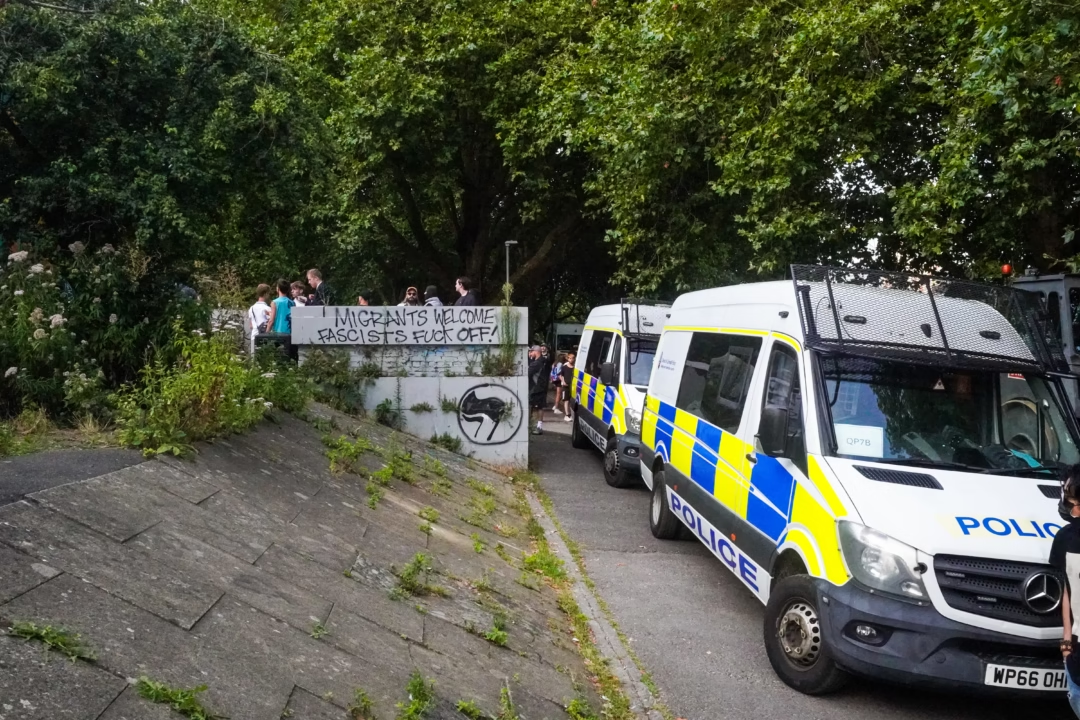
“The [rumour] was that there was going to be a Kent branch of a far-right group going to an immigration lawyer’s office [in Old Market]. We did a lot of work to get the word out, leafleting, speaking to all the local residents and businesses in the area,” says Paul*, a GMB activist based in Bristol.
“Various different branches [of the union] came down to support. We were out there early on in the afternoon… you could feel the tension in the air. I’m fairly seasoned in mobilising against the far right, but I can imagine for someone doing it for the first time, it’s chaotic, you don’t know what’s going to unfold.
“But as it happened, we arrived there and were quickly joined by plenty of friendly faces.”
The far-right activists didn’t materialise. If they had, they would have been met by the thousands of people who packed out the Old Market area to counter them.
As the night drew on, the fear turned to joy and celebration, as a soundsystem was set up and the crowd broke into an impromptu rendition of ‘Free From Desire’. For the local off licence, one of the few shops not to board up, business was booming as the crowd rushed for tinnies.
Don’t be a bystander
But while this huge show of solidarity is something to celebrate, the real fear and threat of more far-right violence should not be underestimated.
Last year’s racist riots were incited by the tragic killings of three girls — Alice Da Silva Aguiar, Bebe King and Elsie Dot Stancombe — and the stabbing of other women and girls, at a Taylor Swift-themed dance class in Southport.
Following the murders, and before the violence, an online conspiracy claimed that the perpetrator was a Muslim man who had arrived in the UK illegally on a small boat.
In Hull, a Romanian man was dragged from his car as people shouted “foreigners” and “get them” ; white men tried to set fire to hotels housing families of people from the Global South seeking asylum in the UK.
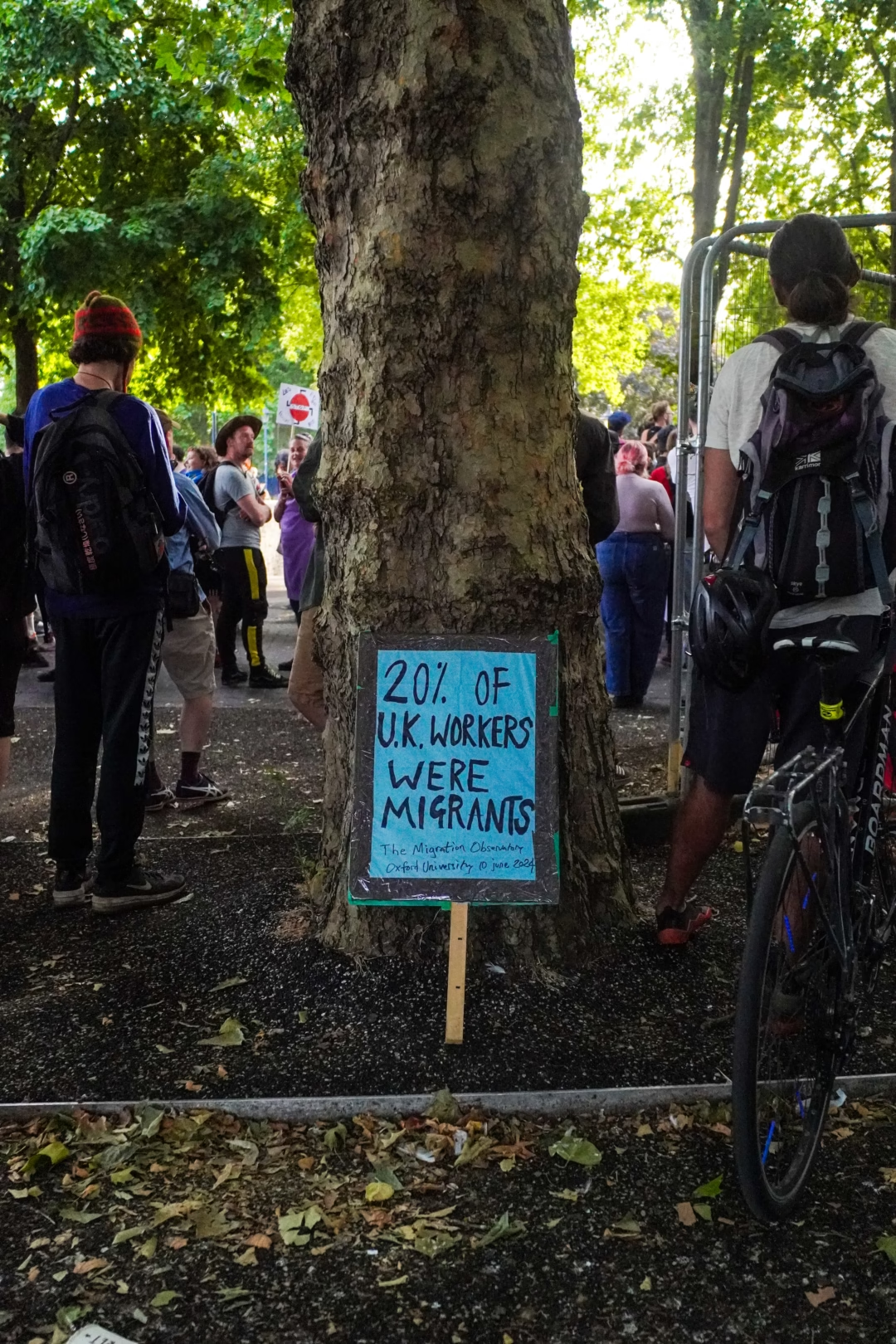
And the racist violence, the ideology and misinformation that fuelled it, has by no means disappeared. There are signs we may be heading into a repeat of last summer’s violence.
In May this year, the far right returned to Bristol. While many showed up to counter them, far fewer did than last summer. Demonstrators were racially abused, clashes broke out.
In July, far-right demonstrators targeted a migrant hotel in Epping, Essex. The protests were held after an asylum seeker was charged with sexual assault after allegedly attempting to kiss a 14-year-old girl.
Days later, there were protests outside a hotel in east London after misinformation was spread that asylum seekers housed in Epping were being moved there. Anti-migrant protesters came with banners that read: ‘Justice for our girls’, ‘Deport all illegals’ and ‘Bring back hanging’.
“[Last year’s racist violence] was just one episode in a series of things,” says Fin*, a Bristolian activist who attended the counter-demonstrations here last year. “We have to pay attention because it’s going to keep getting worse… There is literally a global descent into fascism going on… here in the UK, we laugh off American politics, but we’re only five years behind.”
“I think this is definitely going to be more common, and we need to be ready to confront it. Fascism has historically never gone away with debate or discourse. Don’t be a bystander because it will inevitably be at your door, and by the time you realise it’ll be too late.”
It’s not enough to rely on those in power – it has to be people. We have to organise and learn to rely on and support each other
We asked readers to reflect on how last year’s racist violence has impacted them personally – what the city’s response did to their sense of trust and safety in their communities. Most of those who responded to our callout look back on how Bristol resisted the far right with a great sense of pride.
“I can confidently say Bristol is an antifascist city. What happened in Old Market last summer is an example of that… Thousands of people, not all of them political, or very radical in their beliefs. But they are opposed to hatred,” says Sam, who joined the demonstration on 7 August last year.
“Bristol showed up! Everybody I know was there,” says Abbie of the numbers in Castle Park and outside the Mercure.
“For people’s sense of community, sense of security and wellbeing, we can’t rely on societal structures – it’s not enough to rely on government, police, or people in power – it has to be people. We have to organise and learn to rely on and support each other.”
The far right is planning to target the Mercure Brigstow hotel, Welsh Back, on Saturday (9 August). A counter-demonstration is planned to oppose them in the same street, starting from 11.30am.
Independent. Investigative. Indispensable.
Investigative journalism strengthens democracy – it’s a necessity, not a luxury.
The Cable is Bristol’s independent, investigative newsroom. Owned and steered by more than 2,600 members, we produce award-winning journalism that digs deep into what’s happening in Bristol.
We are on a mission to become sustainable, and to do that we need more members. Will you help us get there?
Join the Cable today